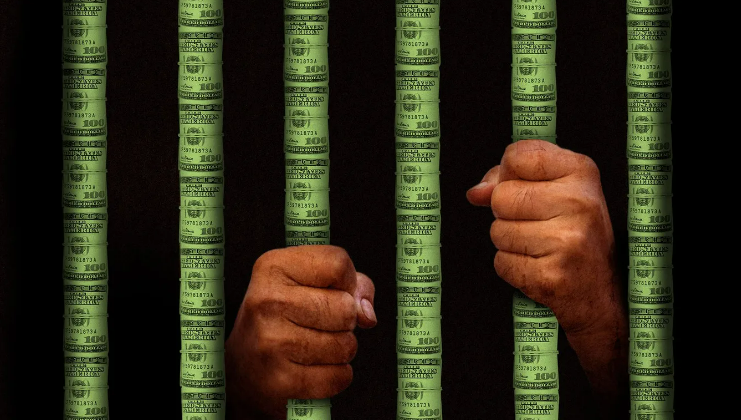Georgia Cash Bail Expansion Criminalizes Charitable Bail Funds
Bill would see misdemeanor charges for any entity to submit more than three cash bonds per year

A controversial Republican-backed bill that would criminalize state bail funds and expand the list of charges that require cash or property bail recently passed the Georgia Senate in a 30-17 vote.
Senate Bill 63 adds roughly 30 charges that would be ineligible for release without a property or cash bond. These charges include unlawful assembly and obstruction of a law enforcement officer, and racketeering and conspiracy; charges that have been made against several “Cop City” protesters. If the bill becomes law, many more people will be unable to afford bail and force many others to spend more time in jail before they can appear before a judge.
The bill would also make it a misdemeanor for “any individual, corporation, organization, charity, nonprofit corporation, or group in any jurisdiction” to submit more than three cash bonds per year. This would make it harder for local advocacy organizations like Southerners On New Ground to bail out Black mothers and caregivers on Mother’s Day or for groups like the Atlanta Solidarity Fund to bail out protesters who have been arrested during demonstrations.
Additionally, bail bond companies would be banned from posting cash bail for illegal immigrants.
State Senator Josh McLaurin (D-14), who voted against the bill, argued that this would force judges to set bail even in cases in which defendants would have otherwise been released on their own recognizance, including those who are charged with low-level or non-violent offenses. He added that it could worsen conditions in Georgia jails and accelerate overcrowding in jails that are already among the nation's worst.
While supporters of the bill claim the goal is to make the community feel safer by being "tougher on crime," McLaurin added that FBI reports showing sharp decreases in violent crimes in the last couple of years do not support those lawmakers’ tough-on-crime stances.
“We have to remember somebody is innocent until proven guilty when they’re held pretrial,” said McLaurin. “So what that means is it is unconstitutional to use cash bail or pretrial procedure as punishment.”
McLaurin stated that the bail measure violates the rights of people who are merely accused of committing a crime. Judges’ main concerns regarding bail include whether a suspect is likely to pose a risk to the public and whether he or she is likely to attend court hearings “What we are doing with this bill, is we’re continuing a years long trajectory toward deciding that the statutes of this state and entire categories of crime should determine the answer to those two questions as opposed to a judge who is sitting in the courtroom looking at the defendant face to face,” McLaurin added.
The Georgia House of Representatives is expected to pass the bill this week. It will then head to Governor Brian Kemp’s desk for his signature, when yet another "tough on crime" bill stands little to no chance of actually doing anything about crime.










